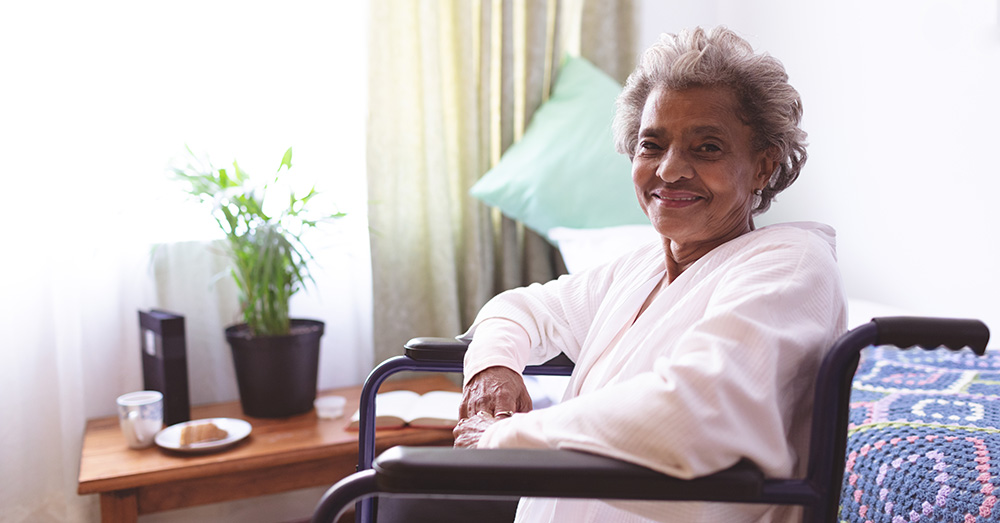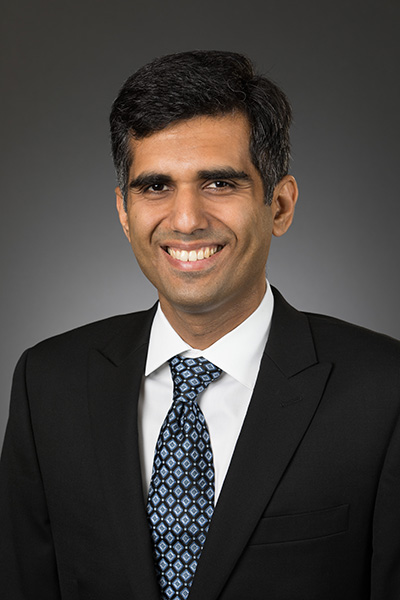Electronic Health Record Adoption in Nursing Homes
Hope for a better future: When EHRs become more widely used in nursing homes.

Nursing homes have been slower to adopt EHRs
Electronic health records (EHR) have become a crucial tool for medical professionals. EHRs are a result of decades of innovation and improvement. Originally considered a mere substitute for paper records, the capabilities of modern EHR systems extend far beyond being digital clipboards and filing cabinets. Prompt access to patient records has streamlined the workflow for providers and increased the efficiency and quality of care for patients.
We spoke with Neeraj Dayama, MBBS, PhD, MBA and Alyce Ashcraft, PhD, RN, CNE, ANEF, about the history of electronic health records and why nursing homes have been slower to adopt these systems.
Dayama is an Assistant Professor of Healthcare Management and Leadership in the TTUHSC School of Health of Professions. Ashcraft is Associate Dean for Research and Scholarship and a University Distinguished Professor in the School of Nursing.
Dayama received an institutional grant to research EHR adoption rates in Texas nursing homes. “They are lagging,” he says. “We’ll do a survey across Texas nursing homes to measure EHR adoption rates and how it affects quality of care.”
Ashcraft is supporting Dayama’s grant research as a mentor.
The History and Evolution of EHR

Alyce Ashcraft, PhD, RN, CNE, ANEF
“EHR is a longitudinal digital version of a patient's health records, consisting of their medical health: allergies, labs, clinical notes and reports.” Dayama explains. “The adoption of EHR has gradually increased over time, mostly aligned with the development of technology.”
EHR adoption increased over the last three decades, specifically after 2009 with the passage of the Health Information Technology for Economic and Clinical Health Act (HITECH). The HITECH Act was established to encourage and expand the adoption of health information technology, specifically the use of EHRs by providers.
“But nursing homes were not included in that legislation,” Dayama says. “So, since 2009, EHR adoption rates have increased in hospitals and physician offices, but less so in nursing homes.”
The Benefits of EHR
To understand the value of EHRs, Dayama gives an example of a grandchild having to take their grandmother to the ER due to a fall, causing her to lose consciousness and become unable to share her drug history.
“If they had her EHR information in advance, they would know all of her medications and what she is allergic to,” Dayama explains. “EHR should be a tool to help people live healthier through prevention of illness and management of chronic illness.”
EHR in Texas Nursing Homes

Neeraj Dayama, MBBS, PhD, MBA
As for the reasons for slow adoption of EHR in nursing homes, Ashcraft points to a new study that is “hot off the presses.” The National Academies of Sciences, Engineering and Medicine examined how the U.S. delivers, regulates, finances and measures quality of nursing home care, especially in light of the challenges encountered with the COVID-19 pandemic.
They propose seven recommendations that must all be implemented together, including the adoption of Health IT systems, which includes EHRs.
The recommendations all matter,” Ashcraft stresses. “They all fit together as a whole, and you shouldn’t take one separately.”
The research that Dayama and Ashcraft are undertaking will be to survey Texas nursing homes to discover who is and isn’t using EHRs. Why are nursing homes slow in adopting this technology? Ashcraft puts it simply: “Change requires money.”
Ashcraft believes that profits should be turned into appropriate care for older adults. And Ashcraft is quick to distinguish “appropriate” from “adequate.” Adequate, she says, is the same as minimal care.
“Another challenge is that EHR companies do not collaborate with each other, because they are using proprietary technology”, she says.
This research study of Texas nursing homes will include recommendations and policies.
“That is where we will talk to lawmakers,” she says. “For nurses taking care of patients, they need it [EHR] to be user friendly and fast.”
She stresses the importance of remembering rural areas when it comes to improving nursing homes.
“The reason I think rural nursing homes are very important is because we know if someone lives in a small town, they do not want to leave their home and community,” she says. “They want to stay in their community and be cared for by the people they know.”
Dayama’s survey will soon be going out to public health regions in Texas, and Ashcraft is eager to see the results, particularly in West Texas rural areas.
“I keep reminding my friends in Houston that there is something besides the I35 corridor,” she says with a smile.
Related Stories
The John Wayne Cancer Foundation Surgical Oncology Fellowship Program at Texas Tech University Health Sciences Center Announced
TTUHSC is collaborating with the John Wayne Cancer Foundation and has established the Big Cure Endowment, which supports the university’s efforts to reduce cancer incidence and increase survivability of people in rural and underserved areas.
Making Mental Health a Priority in the New Year
Sarah Mallard Wakefield, M.D., a psychiatrist with Texas Tech Physicians, talks about strategies to combat widespread and growing anxiety.
TTUHSC Dean to be Inducted into the National Academies of Practice as Distinguished Fellow
Gerard E. Carrino, Ph.D., MPH, dean of the TTUHSC Julia Jones Matthews School of Population and Public Health, will be inducted into the National Academies of Practice (NAP) as a Distinguished Fellow of the Public Health Academy.
Recent Stories
National Academy of Inventors Names TTUHSC Faculty Senior Members
The National Academy of Inventors (NAI) has designated two current and one former TTUHSC faculty researchers as Senior Members.
The John Wayne Cancer Foundation Surgical Oncology Fellowship Program at Texas Tech University Health Sciences Center Announced
TTUHSC is collaborating with the John Wayne Cancer Foundation and has established the Big Cure Endowment, which supports the university’s efforts to reduce cancer incidence and increase survivability of people in rural and underserved areas.
TTUHSC Receives $1 Million Gift from Amarillo National Bank to Expand and Enhance Pediatric Care in the Panhandle
TTUHSC School of Medicine leaders accepted a $1 million philanthropic gift from Amarillo National Bank on Tuesday (Feb. 10), marking a transformational investment in pediatric care for the Texas Panhandle.
